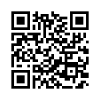ADULTS – CHILDREN POWER RELATIONS IN JUDY BLUME'S BLUBBER
Downloads
(Tittle: Adults-Children Power Relations in Judy Blume's "Blubber"). This study aims to uncover the power relations between adults and children in Judy Blume's novel entitled Blubber. This study used a qualitative method by paying attention to the expressions used in the novel related to the topic of power relations of adults-children. Peer debriefing techniques were applied in this study in order to achieve the validity of the research results. The collected data of dialogues and narrations suggest that adults assert dominance toward children especially physically and psychologically as a consequence of the adults' ideologies while trying to retain the image of a mentor. On the other hand, they also give spaces for children to grow and develop themselves. The research also revealed how Blubber paints a more realistic depiction of children and explores more of their human nature beyond images of innocence and naivety.
Keywords: abuse, Blubber, children's literature, egalitarian, power relationsDownloads
Ansell, N. (2005). Children, youth and development. London: Routledge.
Birditt, K. S., Miller, L. M., Fingerman, K. L., & Lefkowitz, E. S. (2009). Tensions in the Parent and Adult Child Relationship: Links to Solidarity and Ambivalence. Psychol Aging, 24(2): 287-295. https://www.ncbi.nlm.nih.gov/pmc/articles/PMC2690709/pdf/nihms-94367. pdf. DOI:10.1037/a0015196
Blume, J. (1981). Blubber. London: Pan Books Ltd.
Cambridge Dictionary. https://dictionary. cambridge.org/dictionary/english/egalitarian
Carey, E. (2018). Child emotional and psychological abuse. Healthline. https://www.healthline.com/health/child-neglect-and-psychological-abuse
O'Donoghue, J. L., & Strobel, K. R. (2007), Directivity and freedom: Adult support of activism among urban youth. American Behavioral Scientist. Vol. 51 Number 3. Sage Publication
Foucault, M. (1977). Discipline and Punish: the Birth of the Prison, New York: Random House.
Lukens, J. R. (2007). A Critical Handbook of Children's Literature. New York: Pearson.
Martens, A. (2015). "Ideology in children's Literature: critical discourse analysis of the adult-child power relation in Roald Dahl'S Matilda." University of Amsterdam.
Neuman, W. L. (2007). Basics of Social Research: Qualitative and Quantitative Approaches. Boston: Allyn and Bacon.
Nodelman, P.(1992). The Pleasure of Children's Literature. USA: Longman, 1992. Print.
Nodelman, P. (1992). The Other; Orientalism, Colonialism, and Children's Literature. Children's Literature Quarterly 17.1 29-35. DOI: 10.1353/chq.0.1006
Nurhayati, A. (2019). Intersecting oppression of gender and race in Toni Morrison's The bluest eye and God help the child. Litera. Vol. 18, No.3.DOI: 10.21831/ltr.v18i3.27796
Sarumpaet, R. (2002). Anak dan Sastra Anak: penjajah dan taklukannya (Children and Children's Literature: Colonizer and its Colonized). Jakarta: Horizon.
Sugiarti. (2007). Telaah dekonstruksi kekuasaan dalam novel dari fontenav ke magallianes karya Nh. Dini dalam perspektif budaya. Diksi. Vol 14 No. 2. DOI: https://doi.org/10.21831/diksi.v14i2.6596
Techacharoenrungrueang, S., & Wanchai, M. (2017). Power relations between adults and children in Thai children literature: the critical discourse analysis revisited. The 10th International Conference of HUSOC Academic research 2017. Chiang Rai Rajabhat University.
Wakhyudi, Y., & Wibisono, Y. (2019). Penguatan Karakter Islami Anak Melalui Cerita. Jurnal Dialektika. Vol. 9 No. 2.
WHO. (2020). Violence against children. https://www.who.int/news-room/fact-sheets/detail/violence-against-children
The authors who publish this journal agree to the following requirements. The author retains the copyright regarding the work being simultaneously licensed below Creative Commons Attribution ShareAlike License.

Jurnal Diksi by Faculty of Languages, Arts, and Culture, Universitas Negeri Yogyakarta is licensed under a Creative Commons Attribution-ShareAlike 4.0 International License.
Based on a work at http://journal.uny.ac.id/index.php/diksi




















